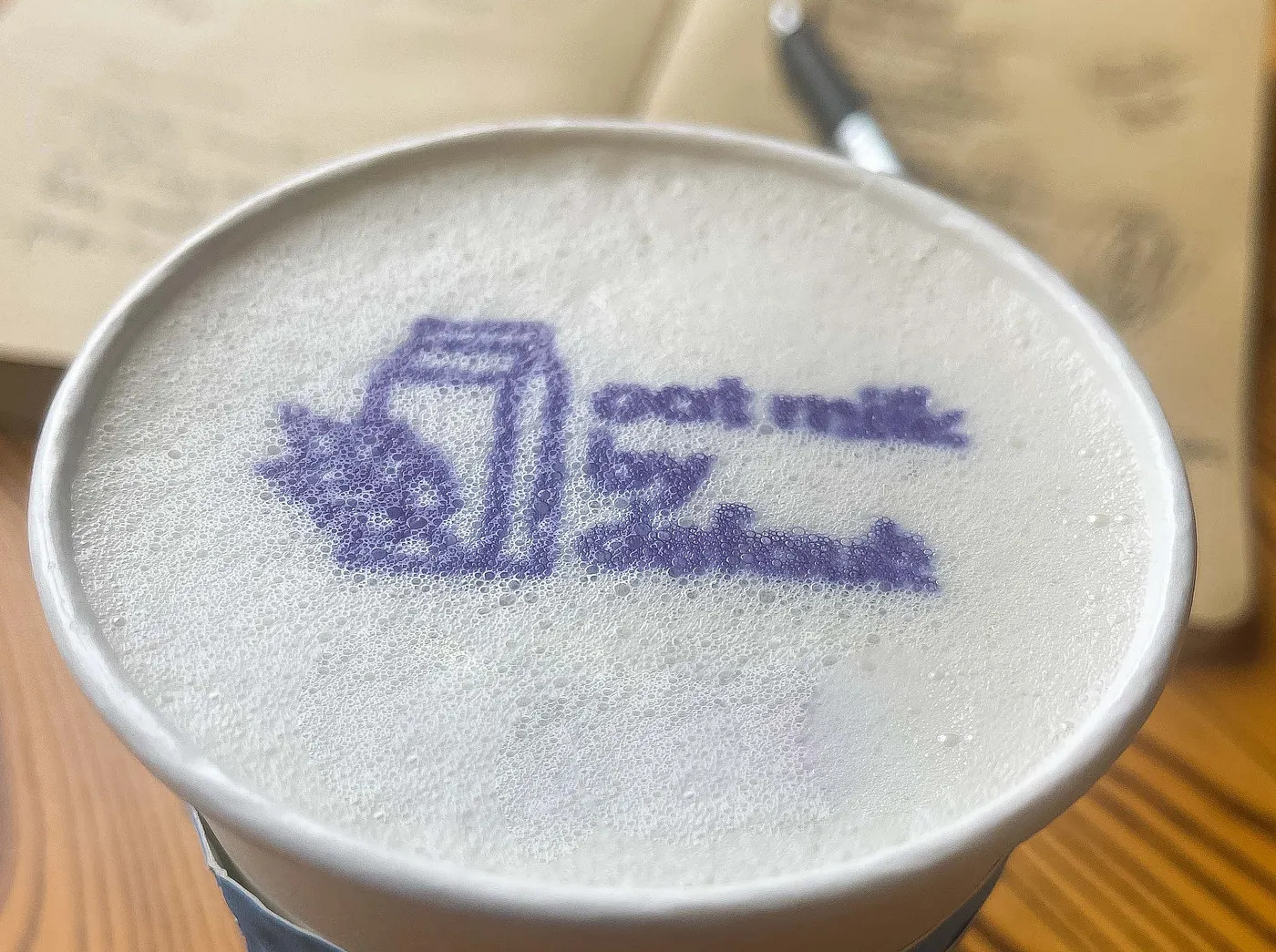College students are in the home stretch. Just two weeks until final exams, it’s crunch time — with project deadlines looming, students are hitting the cold brew and buckling down to finish the semester strong. Even so, the campus vibe has shifted to one of optimism and anticipation. Seniors are looking forward to graduation, younger students have registered for fall classes, and faculty as much as anyone eagerly welcome summer break. There’s plenty to look forward to, and we’re right there with them.
While pulling all-nighters and skateboarding to class may never go out of style, the college landscape has certainly shifted in the past few years. Online learning continues to boom post-pandemic, which has helped to accommodate nontraditional students going back to school. And why not? Applying is easier than ever. No need to submit SAT scores anymore; introduce yourself in a video essay instead. The most revolutionary changes, though, have been taking place with food and drink.
Four years since Gen Z icon Greta Thunberg gave her now famous UN speech, universities have begun to heed the call and revamp campus policies to be more climate-friendly. A major piece of that trend has occurred at campus eateries. Some universities are adding emissions estimates to menus (carbon-counting is the new calorie-counting?) while others have joined the locavore movement, cutting down on food miles by starting campus gardens. One of the most effective ways to serve planet-friendly food, though, is one our followers already know — serving plants by default.
While dozens of universities have implemented veg-forward food policies in some way or another, a more recent trend has capitalized on college kids’ caffeine reliance: In the past year, at least three universities have experimented with DefaultVeg coffee. The UK continued its trendsetting ways, with University College London leading the pack in 2022 and University of Birmingham joining a year later. As of April 3rd, the University of San Diego is the first American college to adopt a default oatmilk policy. In partnership with the Better Food Foundation, USD’s Aromas Cafe is trialing an oatmilk default for the month of April to celebrate Earth Month. The idea was first floated as a submission to the Changemaker Challenger, wherein students propose campus solutions to larger food justice issues. A team of student volunteers is now seeing the proposal to fruition. Says senior Jaylynn Choi, “I hope to continue my work with … the university to create institutional change and a more inclusive and sustainable world.”

This oat-happy collegiate trend echoes a plantmilk emergence among private businesses, California’s own Peet’s Coffee announcing a new spring menu that heavily features almondmilk and oatmilk lattes (sans upcharge!) just weeks before USD launched its pilot. Companies like Peet’s are going plant-based as a simple business decision. In response to a veg-friendly market driven largely by dairy-averse Gen Z, coffee providers are advertising their plant-based offerings front and center. Colleges and universities have more than profit on the line, though; they have mission statements, social responsibilities, and reputations to uphold.
If the goal was simply to cater to Gen Z consumers’ oatmilk tendencies, college cafes could offer plant-based options and call it a day — but colleges are not morally neutral entities. They’re value-based institutions with a code of ethics and a set of goals, and while those ethics and those goals vary by institution, universities are responsible for modeling “good behavior,” however the trustees and admin have defined that. As enclaves of enlightenment, colleges and universities often adopt forward-thinking campus practices (hence the video essays, emissions estimates, and campus gardens). Plantmilk defaults are the logical next step. Making campus cafes DefaultVeg — to whatever extent — prioritizes the eco-friendly food students want to see while also advancing colleges’ missions, social justice goals, and climate action plans.
Only half of USD students identify as white, which makes lactose-free practices as important as ever. Dairy defaults presume lactose tolerance, but lactose sensitivity correlates directly with race. Inclusion demands that we make plant-based milks accessible and affordable, and plantmilk defaults remain the boldest way to eliminate upcharges. As usual, plant-based defaults are a win-win, and educational institutions are embracing the possibility.

Come fall, you can expect to see more oatmilk defaults on college campuses, echoing our general prediction for 2023. This is the year of plant-based milks, and the rise of oatmilk will continue in franchised cafes and college campuses alike. The future is plant-based, and that future knows no bounds; culture is shaped wherever people gather in community, be it in a shopping plaza, on a street corner, or across the quad from Science Hall.
Want help getting your fave coffee shop to go DefaultVeg? Contact us!
Latest News
See All NewsWebinar: Food Systems Education
The Better Food Foundation is hosting a webinar, ‘Food Systems Education: Equipping the next generation of leaders through service learning” with Plant Futures & Switch4Good on Thursday, April 3, 2025 at 11:00 am PT / 2:00 pm ET.
Webinar: Best Practices in Plant-Based City Food Policy
The Center for Biological Diversity is hosting a webinar, ‘Best Practices in Plant-Based City Food Policy’ on Wednesday, April 9, 2025 at 4:00 pm ET / 1:00 pm PT.
These 7 Colleges Are Making Plant-Based Dining the New Norm This Fall
As the leaves change this fall, so do menus at universities nationwide — with plant-based foods rising to the top.